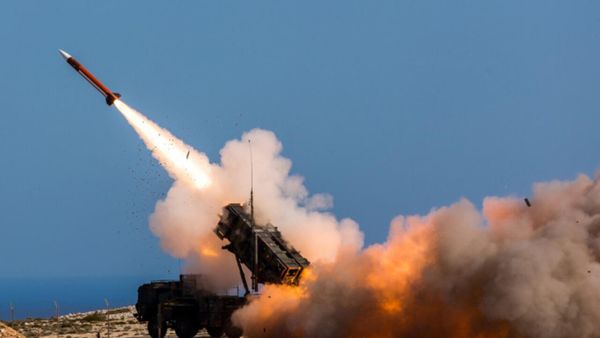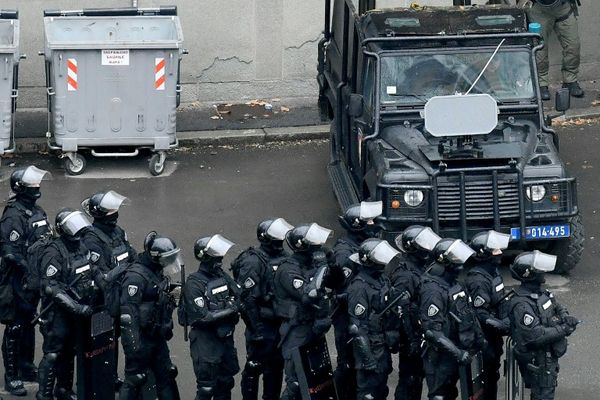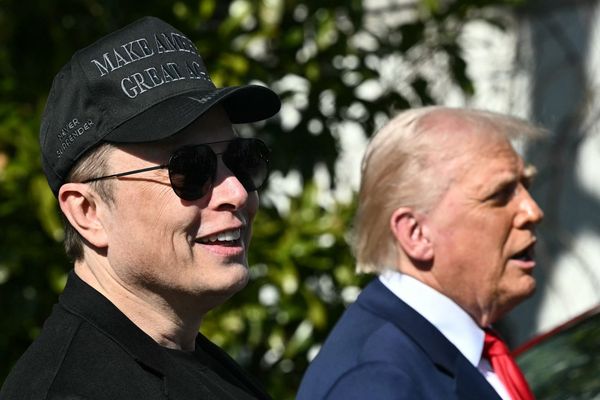Rather like children in playgrounds, countries throughout history have had to decide how to deal with a bully. Appease him in the hope that he becomes meek? Avoid provoking him, at the cost of acquiescing to his brutality? Or counter with strength and willpower to stop and contain him?
If the bully is Russian President Vladimir Putin, the latter is the only tenable answer. That’s what majorities of voters and legislators in Finland and pluralities in Sweden have understood in the past two months. Traditionally neutral, both countries are now moving fast toward joining NATO. They'll probably file coordinated applications in mid-May. If NATO is wise, the alliance will seal the deal at once.
Like each of the other four countries that are members of the European Union but not NATO — Austria, Ireland, Cyprus and Malta — Sweden and Finland have in the past had good reasons to remain unaligned. Sweden’s policy, like Switzerland’s neutrality, dates back centuries and used to be part of the country’s raison d’etat. Finland’s was a response to Soviet intimidation during the Cold War, a quid-pro-quo to remain nominally independent.
But at a time when Putin assaults Ukraine, Europe and the entire international order with his bombs, atrocities and lies, neutrality is no longer an option. That’s why all six countries should irrevocably side with the West. This step is most urgent for Finland and Sweden.
Finland shares an 830-mile land border with Russia. And both it and Sweden butt up against Russia in the Baltic Sea. In effect, the Scandinavians are therefore already on the front line. They need NATO’s protection under its Article 5 — the one that says that an attack on one is an attack on all.
The two Nordics in turn would strengthen NATO where the alliance is weakest. Its most vulnerable members are Estonia, Latvia and Lithuania, just across the Baltic. They’re all but cut off from the rest of the EU and NATO by Russia’s exclave in Kaliningrad. The only land border between Lithuania and Poland is a 65-mile strip, called the Suwalki Gap, between Kaliningrad and Belarus, which is in effect Putin’s vassal state.
Without Sweden and Finland, the three post-Soviet Baltic republics, which also have sizable minorities of ethnic Russians, would therefore be hard to defend against an onslaught from Russia. But with the Scandinavians, which both have first-rate armies that are already coordinating closely with other Western militaries, the Baltic would become a defensible NATO lake.
The best counter-argument is that Finnish and Swedish membership would all but dare Putin to become even more aggressive, possibly escalating even to the use of tactical nuclear weapons. Ostensibly, Putin attacked Ukraine — like Georgia in 2008 — to prevent NATO expansion. So he’d struggle to explain to the people he fears most — ordinary Russians, who must tolerate him in power — how he’d accept the exact opposite outcome, another NATO enlargement. He’d have to do something.
Like most bullies, Putin has therefore dispatched his minions to drop not-so-veiled threats. Dimitry Medvedev, currently deputy chairman of Putin’s security council, has said that “there could be no more talk of any nuclear-free status for the Baltics — the balance must be restored.” He failed to mention that Russia’s Kaliningrad exclave is already well-stocked with missiles and nukes. So nothing new there.
And yet, Swedish and Finnish membership in NATO would cause what realists in international relations call a “security dilemma.” Broadly, it describes situations in which states escalate or go to war because they regard all other options as worse. In this case, Russia might reasonably conclude that it would lose a conventional arms race with an enlarged NATO, so that a preemptive strike is its least bad option.
Viewed differently, however, that argument resembles familiar and unconvincing ones — in playgrounds or world politics — about not provoking bullies. Putin has proven that he’ll never stop menacing or attacking others, if he thinks he can get away with it. For example, his new war strategy in Ukraine, apparently, is to conquer a land bridge all along the Ukrainian coast of the Black Sea so that he can link up with Russian separatists in Moldova next.
The Caucasus, Central Asia, the Baltic, the Arctic — no country in Putin’s perceived “sphere of interest” will be safe until he understands that he is up against superior power and the determination to use it. NATO must, therefore, show strength and will, not timidity.
The more immediate problem is how to survive the tightrope walk between the Swedish and Finnish applications and their membership. Article 5 takes effect only once they’re in. Even if NATO fast-tracks its process, each of the 30 member nations must still ratify the accessions. For the three countries that joined NATO in 1999, the process took 20 months, 18 for the seven nations who followed in 2004.
This is the time Putin would be most tempted to punish the Scandinavians, with attacks somewhere on the spectrum between cyberwar and a tactical nuke dropped for show. The onus is, therefore, on Finland, Sweden, NATO and all 30 members to collaborate to eliminate this no-man’s-land of time.
So NATO and and all 30 of its constituent allies should prepare right now, as though the applications were already formal. The allies should then give the green light at their summit in Madrid on June 29, with the 30 legislatures immediately giving their approval, ideally the next day.
Extraordinary times demand extraordinary measures. The West trusts NATO to protect it from bullies. That credits the alliance not only with military prowess but also with procedural nimbleness when it matters. NATO could send no stronger message than to become a club of 32 on June 30, 2022 — only four months after Putin began committing the worst of his many atrocities.
____
ABOUT THE WRITER
Andreas Kluth is a columnist for Bloomberg Opinion. He was previously editor in chief of Handelsblatt Global and a writer for the Economist. He's the author of "Hannibal and Me."
This column does not necessarily reflect the opinion of the editorial board or Bloomberg LP and its owners.







